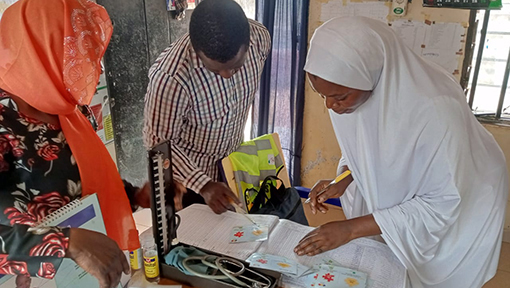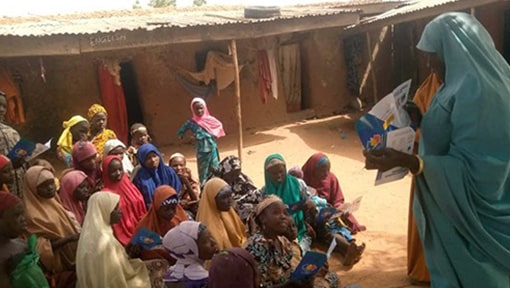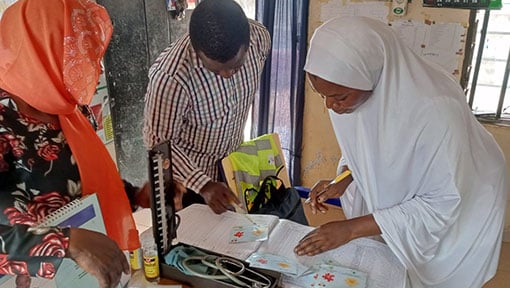Championing Use of Near, Real-Time Reporting Techniques to Enhance Program Delivery and Data Quality in Mwanza
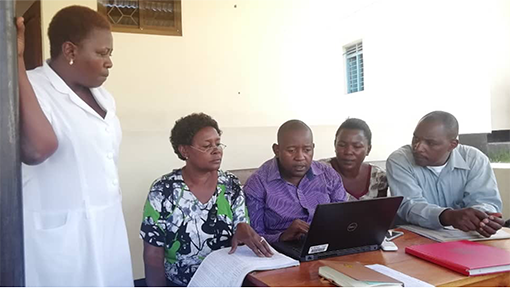
Charles Mushi (center) at a data verification exercise at Kirumba Health Center (Ilemela).
One of the guiding principles of The Challenge Initiative (TCI) is using data to enhance the implementation and scaling up of proven reproductive health and family planning interventions – including adolescent and youth sexual and reproductive health (AYSRH) interventions – to underserved poor communities in urban areas. Data for decision-making is not only important for monitoring and accountability purposes but also to inform adaptations and course corrections.
The appreciation of data and the capacity to review and interpret it needs to be instilled in all staff throughout all levels of the health system, from the facility to the municipality. This helps to ensure a culture of data demand and use, which TCI aims to strengthen through its coaching of local government implementers. Charles Mushi, TCI’s Monitoring and Evaluation Manager in Tanzania, shares what he sees as the major challenges:
A major challenge in collecting data is the quality in the process of reporting. We may have systems in place, but the skills to utilize the systems properly requires regular coaching and mentorship. And, where capacity is not an issue, access to internet connectivity sometimes hampers use of near, real-time reporting through the ODK (open data kit) platform.”
TCI has embarked on a coaching mission to orient health providers in Tanzania on accurate and quality reporting and creating data use champions to reach more providers in cascade coaching sessions. The data champions also set up a WhatsApp Group to coach and sensitize their peers on data issues and how to resolve them. They also use the WhatsApp Group to disseminate key findings from surveys, such as TCI’s sentinel survey and Lot Quality Assurance Sampling (LQAS).
During a quarterly review meeting in Mwanza where the RAISE assessment tool is used, facility reporting rates were a low 65%. Within four months of coaching, a subsequent assessment conducted during the quarterly review meeting showed an impressive improvement to a perfect score of 100%. In addition, it now takes only three days maximum before all reports are submitted onto the TCI dashboard, which pulls data from the local Health Management Information System (HMIS).
Kokulengya Gasper, a health provider at Kirumba Health Center in Ilemela noted:
Reporting is key towards showing the impact of what we are doing. Without proper documentation, how are we supposed to improve the activities and services offered at our facilities?”
Capacity strengthening to improve data reporting which allows for near, real-time data use is one of the most promising approaches to improving the delivery of family planning and AYSRH solutions in TCI-supported geographies across East Africa. As the facility reporting rates have increased, so has the trend in annual family planning client volume, especially for long-acting reversible contraception users in Ilemela Municipality, Mwanza.
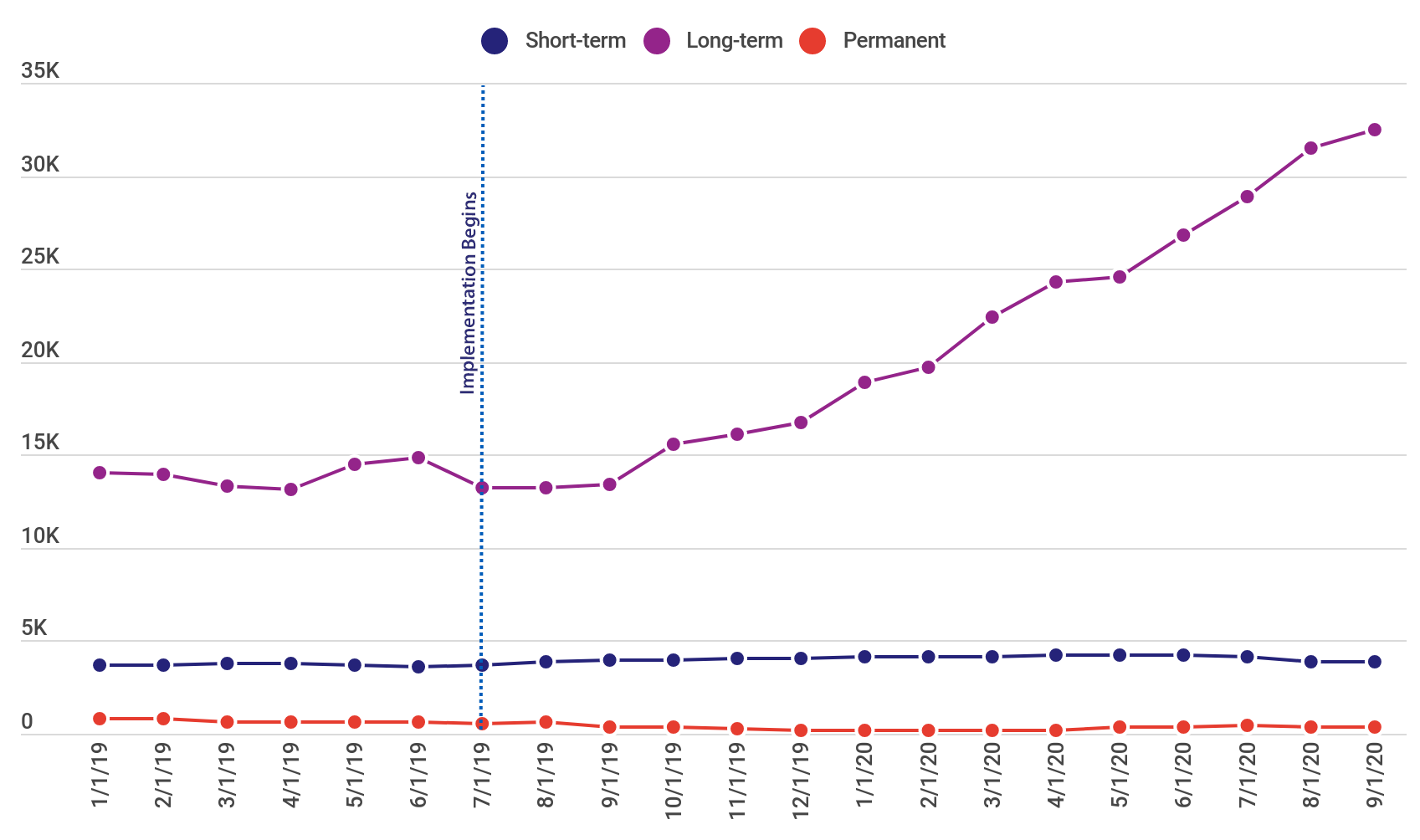
This graph represents the increase in annual family planning client volume in TCI-supported cities (Source: HMIS). To prevent overestimation of short-term methods, the HMIS data has been adjusted using standard “couple-years of protection,” (CYP) which is the total estimated protection provided by contraceptives in a one-year period. To account for seasonal variations, the data represents a 12-month average for short-term methods and a 12-month rolling sum for long-term. Thus, an increase in the trend means that the latest month outperforms the same month from last year.

